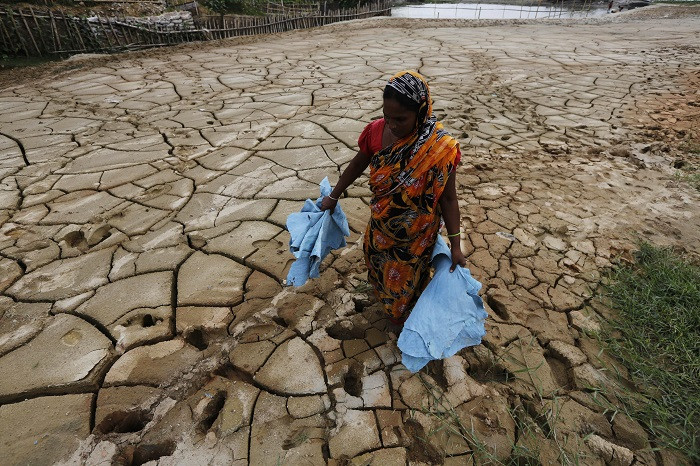Climate Change Will Destabilise the World, Warns UN Report
Upcoming IPCC report warns of increased conflict and mass migrations as climate change intensifies.

Climate change is likely to undermine global security and exacerbate civil wars, a major new UN report warns.
According to the Intergovernmental Panel on Climate Change (IPCC), extreme weather patterns will complicate existing conflicts over resources such as water and energy, leading to further instability.
The report, which is being finalised by a panel of prize-winning scientists in Yokohama, Japan, is due for publication on Monday.
It notes that there is "robust evidence" human security will be threatened by climate change, which will make it more difficult for people to make a living and increase mass migrations, thereby making it harder for countries to control their populations.
Researchers also reveal that "tree mortality and associated forest dieback" will be seen in many parts of the world sooner than previously predicted.
The report is scientifically bold. We are confident that it is ready for the careful scrutiny of the world's governments and the world.
The dieback will be triggered by an increase in storms, heatwaves, wildfires, severe droughts and pest outbreaks, which are expected to result from global warming.
Lead report author Christopher Field, who is co-chair of the IPCC working group, said the findings mark a shift from the 2007 report, which did not conclude that security issues would increase.
However, over the past seven years, social science research has found more links between climate change and conflict, the report says.
After the IPCC's 2007 report, UN Secretary-General Ban Ki-moon wrote that the conflict in the Darfur region of western Sudan began as an "ecological crisis arising at least in part from climate change".
Field, who is the founding director of the Carnegie Institution of Science in California, said: "The report itself is scientifically bold. We are confident that it is ready for the careful scrutiny of first the world's governments, and then the world.
"Dealing effectively with climate change is one of the defining challenges of the 21st century. The IPCC can play a central role in making the process smart, effective, and balanced, addressing the need for knowledge around the world."
Earlier this week, one of the report's 70 authors announced that he had pulled out of the writing team because it was too "alarmist" about the threat posed by climate change.
Richard Tol, a Dutch economics professor at the UK's Sussex University, said the IPCC emphasised the risks of climate change far more than the opportunities to adapt. Tol has at times been at odds with other scientists by pointing out the possible benefits of climate change.
© Copyright IBTimes 2025. All rights reserved.






















